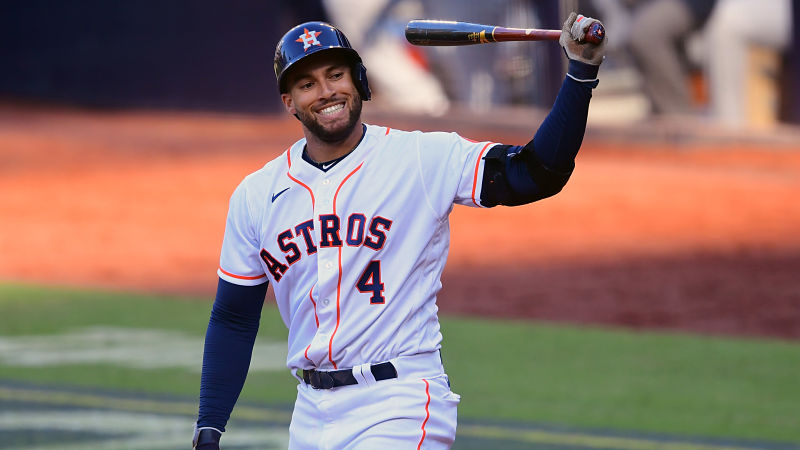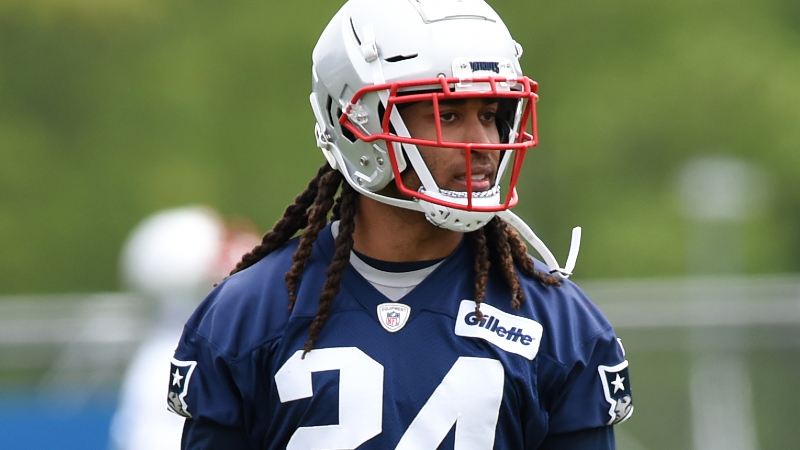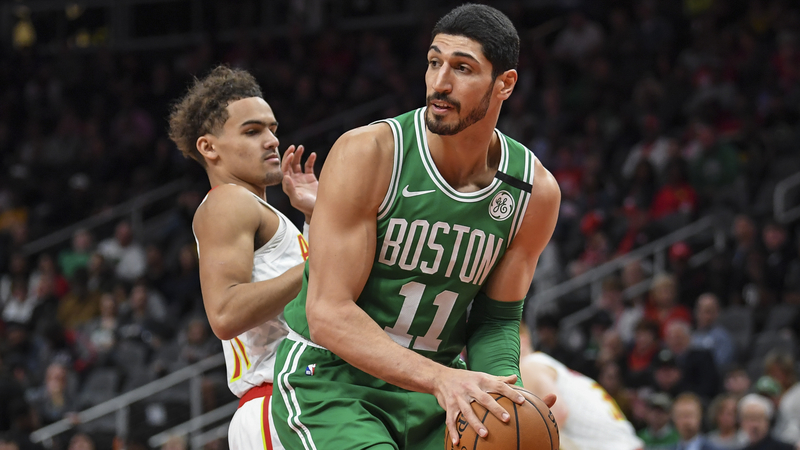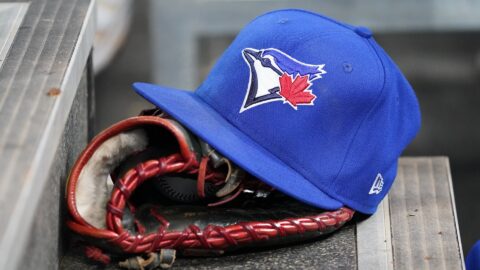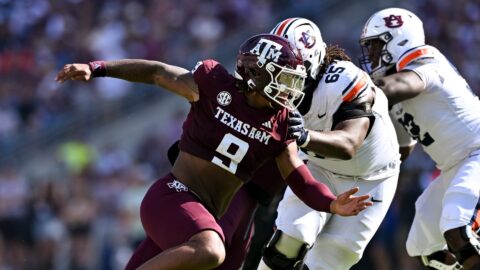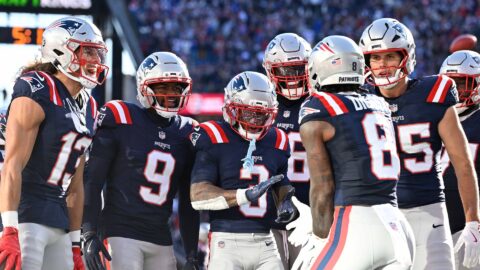Will the Red Sox make a splash this offseason? Boston has financial flexibility and a strong desire to bounce back from a disappointing 2020. As such, we’ll examine whether several notable free agents make sense (or don’t make sense) as the club looks to retool for 2021 and beyond.
Marcell Ozuna signed a one-year, $18 million contract with the Atlanta Braves last offseason after rejecting a one-year, $17.8 million qualifying offer from the St. Louis Cardinals.
To say he enhanced his value in 2020 would be an understatement.
The slugger's market never quite materialized last winter, resulting in him opting for the prove-it deal with Atlanta. But it's highly unlikely that'll happen again, as interest in Ozuna should be far more robust during this trip to free agency.
Ozuna led the National League in home runs, RBIs and total bases while playing in all 60 games of the pandemic-shortened season for Atlanta. He reestablished himself as one of Major League Baseball's fiercest sluggers after two good-not-great seasons with St. Louis, and whichever team signs Ozuna likely will do so with the expectation that he'll anchor the lineup as a middle-of-the-order bopper for several years.
Info
Position: Outfielder (or designated hitter)
Age: 30 (Nov. 12, 1990)
Height: 6-foot-1
Weight: 225 pounds
Bats: Right
Throws: Right
2020 stats
60 games (267 plate appearances)
18 HRs, 56 RBIS
.338/.431/.636
Career stats
991 games (4,128 plate appearances)
166 HRs, 594 RBIs, 26 SBs
.276/.335/.466
Why Ozuna makes sense for Red Sox:
The Red Sox will need an outfielder if Jackie Bradley Jr. leaves in free agency. And while the club might prioritize adding someone who can play center field, in an effort to soften the blow of losing Bradley's defense, they don't necessarily need to go down that path.
Boston theoretically could add a corner outfielder, like Ozuna, with either Alex Verdugo or Andrew Benintendi then shifting to center field.
"I think we have guys on this club who are capable of playing center field," Red Sox chief baseball officer Chaim Bloom told reporters this week during a video conference. "But certainly would like to be in as strong of a defensive position as you can. We know we play in a ballpark where you basically have two center fields here in Fenway Park. So we want to be mindful of that."
Of course, signing Ozuna would mean the Red Sox are comfortable with trading defense for offense, which the 30-year-old provides in spades. Ozuna hit at least 23 home runs in five of six seasons before landing in Atlanta, including a career-high 37 to go along with 124 RBIs and a .312/.376/.548 slash line during a breakout 2017 with the Miami Marlins.
Ozuna's production is backed by an elite average exit velocity and hard-hit rate, so the power is no joke. And one could argue he'd benefit immensely from playing at Fenway Park, where he crushed four homers in two days earlier this summer.
Ozuna isn't a terrible defender. He's certainly more than capable of handling left field in Boston, something he'd need to do as long as J.D. Martinez occupies the designated hitter role.
Still, it's worth noting Martinez, who's coming off an underwhelming 2020, has just two years remaining on his contract and even could opt out next offseason if he bounces back in 2021. Signing Ozuna, a fellow right-handed masher, now would make for a seamless transition at the DH spot once Martinez departs. (You might recall the Red Sox initially struggled to fill the void after David Ortiz retired in 2016.)
Obviously, signing Ozuna, a positively infectious presence, would be a significant financial commitment -- MLB Trade Rumors predicts a four-year, $72 million contract -- but it's an investment that wouldn't require the Red Sox to relinquish any additional compensation. The same can't be said for the four remaining free agents who received qualifying offers from their respective teams this offseason (J.T. Realmuto, George Springer, DJ LeMahieu and Trevor Bauer).
Boston would need to surrender a 2021 second-round draft pick and $500,000 in international bonus pool money if it signed any player who received a qualifying offer. Ozuna was ineligible to receive a qualifying offer from Atlanta this offseason because he already received one from St. Louis last offseason, something that clearly hurt his market in his first trip to free agency but now works in his favor.
The Red Sox, fresh off a last-place finish in the American League East, presumably would like to avoid sacrificing valuable draft capital and international spending flexibility while replenishing their farm system, so this aspect of a potential pursuit is no small potatoes.
Why Ozuna doesn't make sense for Red Sox:
Above all, he doesn't pitch. Boston's offense should be just fine again in 2021, and most of the Red Sox's offseason attention should be directed toward finding help on the mound.
That aside, the Red Sox have financial flexibility, and it's tantalizing to think about inserting Ozuna into a lineup that already consists of Xander Bogaerts, Rafael Devers, Martinez, Verdugo and Benintendi, among others. But he's an imperfect fit defensively, which ultimately might be the overriding factor.
"We can't be too rigid and miss good opportunities, but we’d certainly like to have as strong of a defensive outfield as possible," Bloom said this week. "And a lot of that is contingent on having multiple guys who can play center field."
There's also the question of whether Ozuna can replicate the production he enjoyed in 2020 and 2017, or if he's closer to the solid-not-elite player who averaged 26 home runs, 88 RBIs and a .262/.327/.451 slash line with St. Louis in 2018 and 2019.
The Red Sox would be wise to monitor Ozuna's market, perhaps even striking if the leaguewide economic uncertainty attached to the COVID-19 pandemic forces his price to drop. Just don't be surprised if the Red Sox kick the can down the road, spending more lavishly next offseason, when the crop of impact free agents could be extremely deep.
Verdict: Probably not a fit.
Prediction: Ozuna re-signs with the Braves.

